HEALTH
Championing Dementia and Healthcare Inequalities
”DEMENTIA:
~Anon~
“My eyes do see, my ears do still hear,
I’m still me so let’s be clear,
My memory may fade, My walk may slow,
I am ME inside, don’t let ME go.”
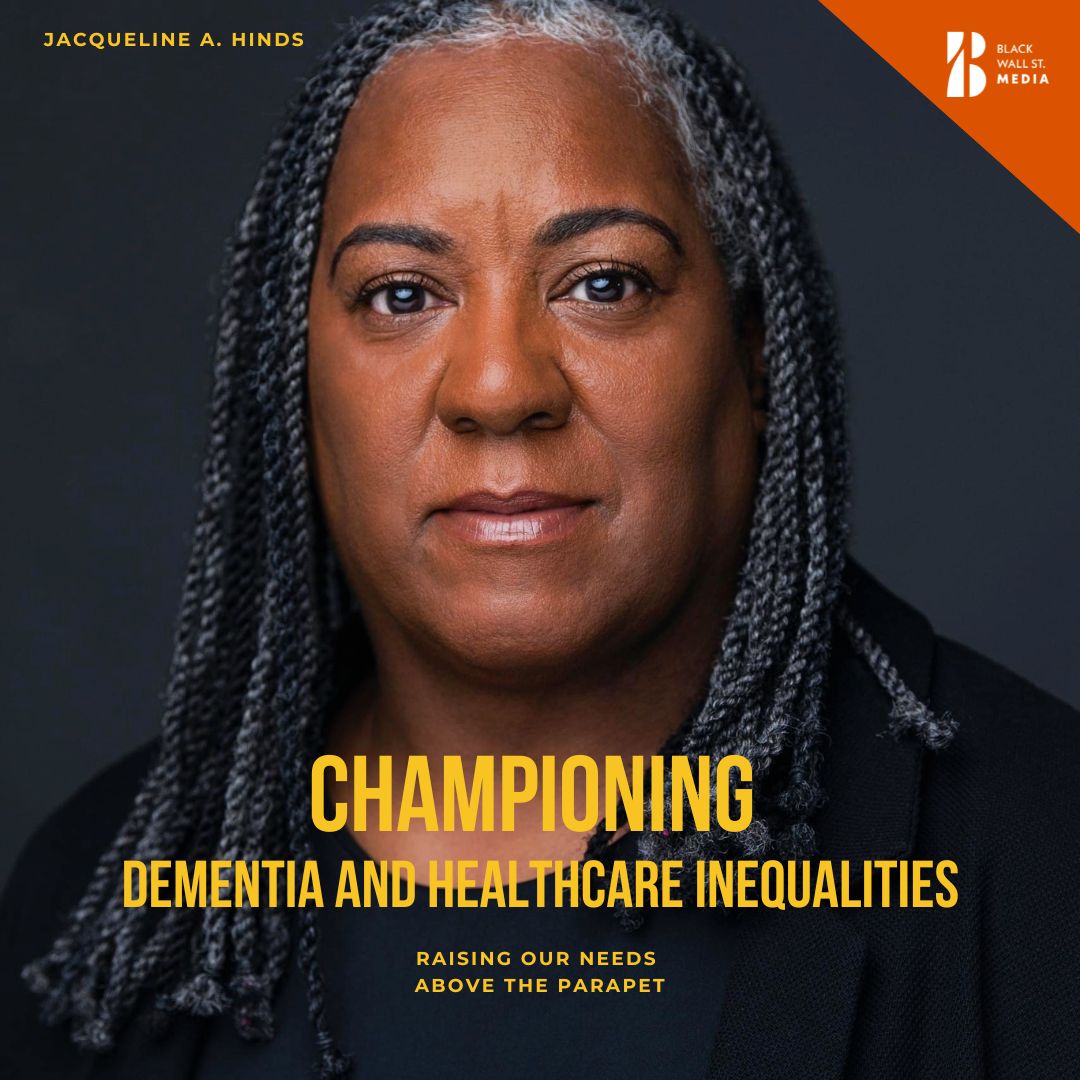
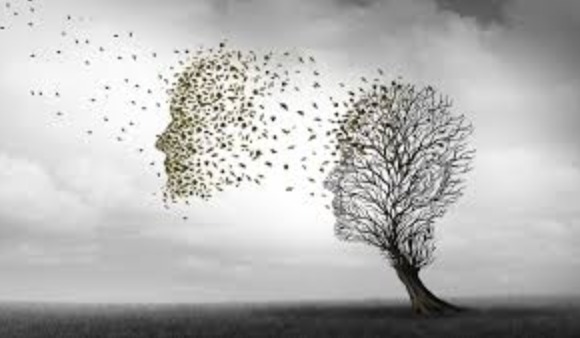
Having witnessed the impact and decline that dementia has had on my relatives and close friends, has left a lasting impression on me, which in turn is motivating and empowering me to raise our heads above the parapet against the inequalities in dementia care management and caregiving.
I’ve seen a dear friend of many, many years decline so rapidly with dementia in a care home during the lockdown, and I’m sure this unprecedented event directly escalated the decline in her health along with ineffective care being provided, leading her to be admitted to hospital severely ill.
Over the course of the pandemic, not being able to see her husband, friends or family, she went from a bubbly personality who loved music to a silent shell.
I firmly believe the lack of speaking to or seeing her husband, friends and family, led her to close down through loneliness.
I didn’t really know much about dementia prior to joining the National Health Service (NHS) in 2006 and, thought it was something that happened to people when they reach old age.
During my 9 years working as a senior manager within staff leadership, learning and development, I developed and delivered Dementia Awareness workshop for non-clinical staff and, by raising the awareness and stigma around dementia, I got more and more involved in highlighting not only the disease but, the fact that Black people are less likely to be diagnosed in a timely manner thus feeding into the inequalities within the healthcare arena.
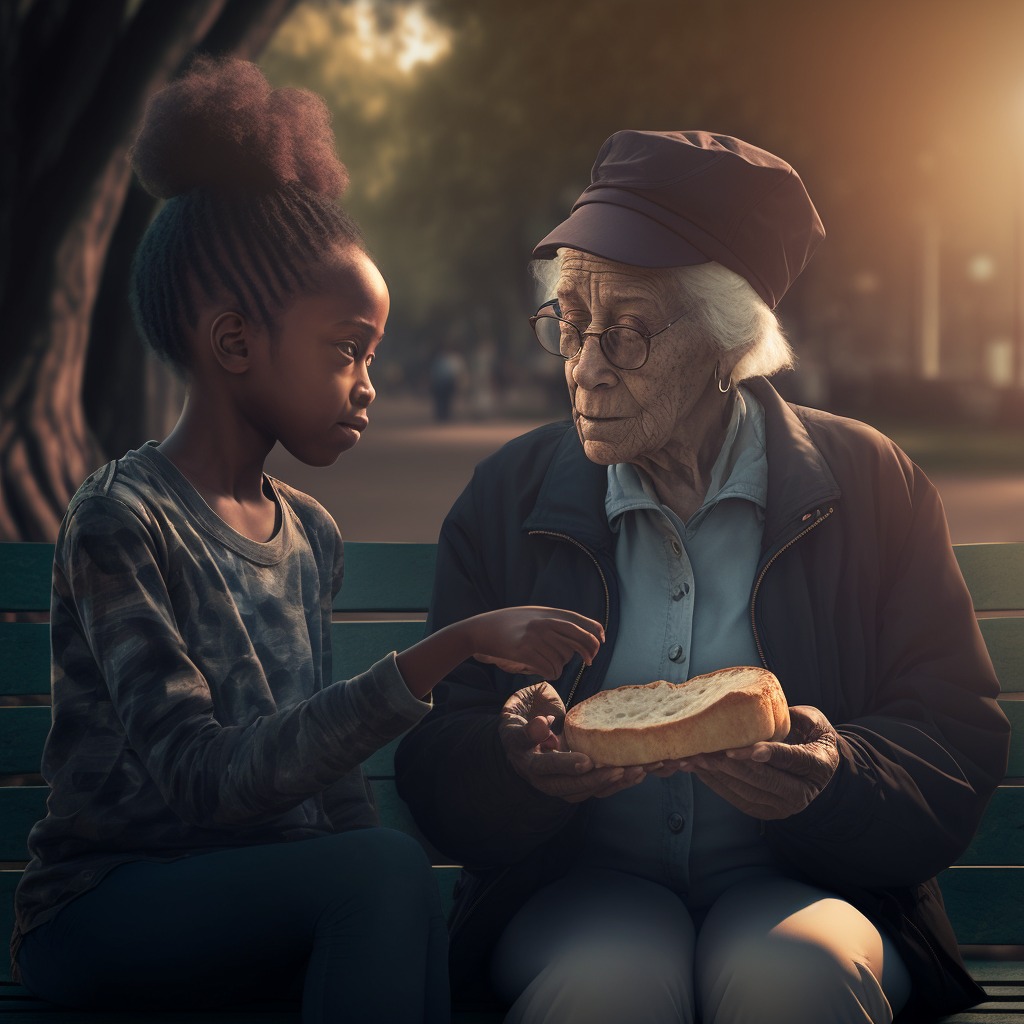
The Society of Emotional Intelligence International UK & Europe will be hosting their 1st Annual International Dementia Care With A Difference Conference in November 2023. This two-day conference will focus on a whole person approach to supporting people living with dementia and their caregivers.
With a hearts and mind approach, we will be going beyond pharmacology, exploring, and learning about innovation and best practices from around the world, sharing support techniques and, the individuality, creativity, and diversity of living with dementia.
We’re raising the parapet on the needs of Black dementia sufferers, by enabling others to walk a mile in their shoes, if only but for a moment. The lived experience and inequalities in health is real, the statistics don’t lie!
If not us, then who?
What is Dementia?
Dementia is the loss of cognitive functioning such as thinking, remembering, and reasoning; this impacts the person to such an extent that it directly impacts their daily life and everyday activities.
Some people suffering with dementia may not be able to control their emotions and, their personalities may change significantly.
As a person ages, their brain will go through considerable modifications such as brain shrinkage, which begins after the age of 60.
Causes of Dementia
There are many things that cause dementia (damage to brain cells) and, depending on the cause the condition is reversible.
There are other dementia-like symptoms such as thyroid, kidney, heart and lung problems, along with urinary and chest infections and strokes; which are among many medical conditions that can produce dementia-like symptoms so, it is always advised that the person is seen by medical experts who will be best placed to give medical advice and use cognitive and neurological tests along with brain scan for best accurate results.
5 Types of Dementia
- Alzheimer’s Disease – the most common type of dementia. People whose parents have Alzheimer’s are at risk of this disease being passed onto them from their parent(s). In general, Alzheimer’s disease is a gradual process and decline, and the illness may last several years. At first, changes may be subtle, but as the disease progresses, the changes become more prevalent.
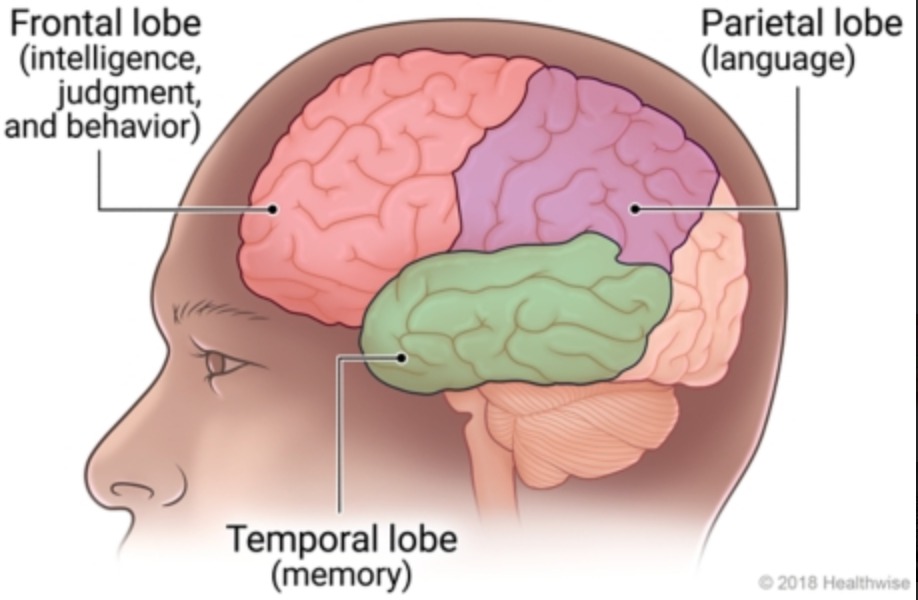
- Vascular – is the second most common type of dementia occurring when the blood supply to the brain is cut off, resulting in strokes and other cardiovascular incidents such as tissue loss.
- Dementia with Lewy Bodies – this condition has similar symptoms to that of Parkinson’s disease, such as tremors and stiffness and shuffle when walking. The sufferer may also suffer from hallucinations and fall asleep during the day and then not sleep at night. This type of dementia is a result of clumps of protein, known as Lewy bodies, form in the brain.
- Fronto-Temporal Dementia – this is a rare type of dementia. This neurodegeneration majorly affects the temporal and frontal lobes of the brain and, typically affects the person’ behaviour and personality, although they may still show signs of memory loss. During the early stages, a person’s memory can be fine, but their personality, behaviour and language skills change. This dementia often causes a loss of insight, and so the person may say and do things at the wrong time and in the wrong place.
- Multi-infarct Dementia – is a combination of two types of dementia and, the most common combination is Alzheimer’s disease and vascular dementia, although some also included Lewy body dementia.
Dementia – The Silent Thief
Dementia is a silent thief, stealing the dementia sufferers’ key relationships and ultimately their independence.
An uninvited and ever-present thief; lurking in the background, not making its presence known until it is either diagnosed my medical professionals or, significant changes in the person’s character and behaviour are picked up by those nearest and dearest to them.
This silent thief made its significant mark during the unprecedented COVID-19 pandemic in March 2020, which resulted in the first national lockdown taking place on the 26th of March and the second national lockdown taking place on the 5th of November of the same year.
This created further inequalities for people living with dementia, their caregivers, including those dementia patients who were residing in care homes were impacted severely emotionally and spiritually.
Not being able to see anyone familiar to them or, getting the stimuli from family, friends and loved ones or, pastoral care from their church ministers and members had an unimaginable impact on their morale and emotional wellbeing.
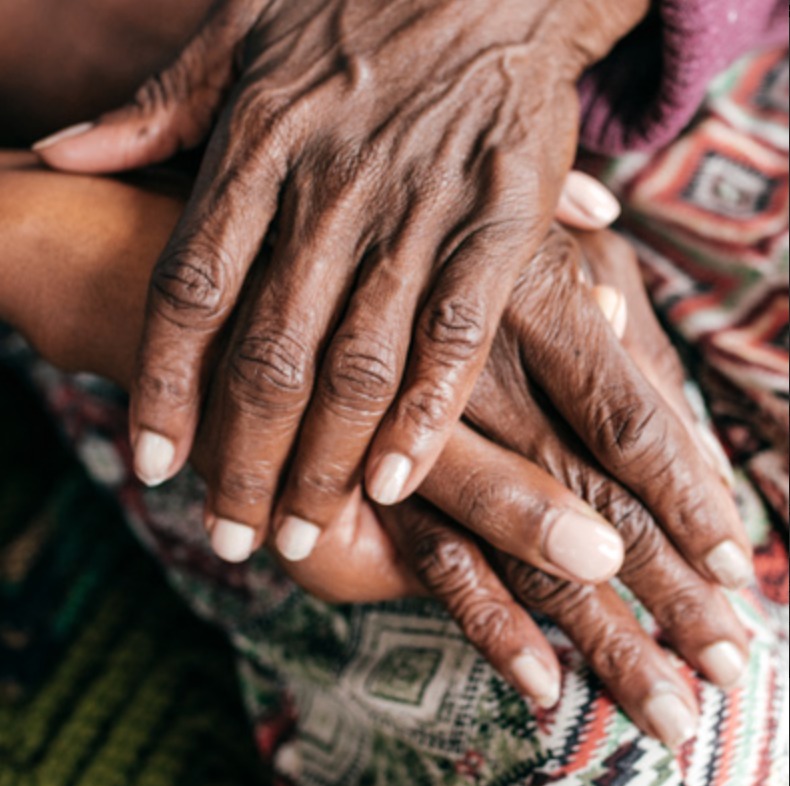
Shedding a light on Inequalities
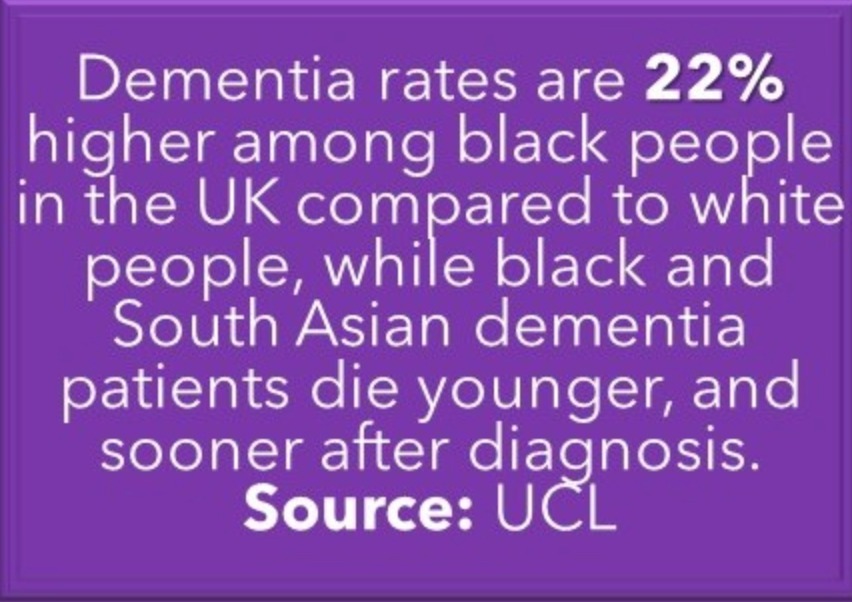
She stated that getting a diagnosis is itself difficult for some people, and there is evidence that those from minority ethnic backgrounds, or those with young-onset dementia take longer in getting diagnosed. What happens afterwards is also problematic, with many complaining about the lack of support that follows a diagnosis.
Some may receive access to a post-diagnostic support group for a few weeks, others may receive a great deal of information, but many were left with little support beyond that.
A study published in the Journal of Clinical Epidemiology in 2018, outlining dementia diagnosis broken down by ethnicity and gender headed up by lead author Dr Claudia Cooper, University College London and King’s College London.
The study found that Black people were deemed at a higher risk of developing dementia but, were less likely to be diagnosed than white people.
Also highlighted in the study was the occurrence of dementia diagnosis being 25% higher among Black women than white women and, 28% higher amongst Black men than white men.
It has been estimated that there are over 25,000 people from Black, Asian and minority ethnic communities living with Dementia in the UK.
In 2018 Nicholas Witchell, ITV News interviewed Dr Claudia Cooper, University College London and Jazz Browne, Chief Executive, Nubian Life Ltd about the findings of the said report.
Jazz Brown stated that Nubian Life Ltd, an award-winning resource centre provides preventative work and support around health and, diet for African and Caribbean people, also helping them understand what dementia is and how it plays out for the individual.
They have been providing day support for people with complex health conditions such as Dementia, Alzheimer’s disease, Diabetes and physical disabilities for over 20 years.
The 2013 report Dementia does not discriminate by the All-Party Parliamentary Group on Dementia, was an important milestone in the recognition of the impact of dementia on UK Black, Asian and minority ethnic (BAME) communities, looking at both the status of research on dementia in BAME communities at the time and taking in a broad range of testimony on the experience of individuals and organisations.
At the same time, a briefing paper was completed for the Race Equality Foundation by David Truswell.
Raising Our Needs Above the Parapet
Having witnessed the impact and decline that dementia has had on my relatives and close friends, has left a lasting impression on me, which in turn is motivating and empowering me to raise our heads above the parapet against the inequalities in dementia care management and caregiving.
I’ve seen a dear friend of many, many years decline so rapidly with dementia in a care home during the lockdown, and I’m sure this unprecedented event directly escalated the decline in her health along with ineffective care being provided, leading her to be admitted to hospital severely ill.
Over the course of the pandemic, not being able to see her husband, friends or family, she went from a bubbly personality who loved music to a silent shell.
I firmly believe the lack of speaking to or seeing her husband, friends and family, led her to close down through loneliness.
The Society of Emotional Intelligence International UK & Europe will be hosting their 1st Annual International Dementia Care With A Difference Conference in November 2023. This two-day conference will focus on a whole person approach to supporting people living with dementia and their caregivers.
With a hearts and mind approach, we will be going beyond pharmacology, exploring, and learning about innovation and best practices from around the world, sharing support techniques and, the individuality, creativity, and diversity of living with dementia.
We’re raising the parapet on the needs of Black dementia sufferers, by enabling others to walk a mile in their shoes, if only but for a moment. The lived experience and inequalities in health is real, the statistics don’t lie!
”If not us, then who?
Jacqueline A. HindsContributor











